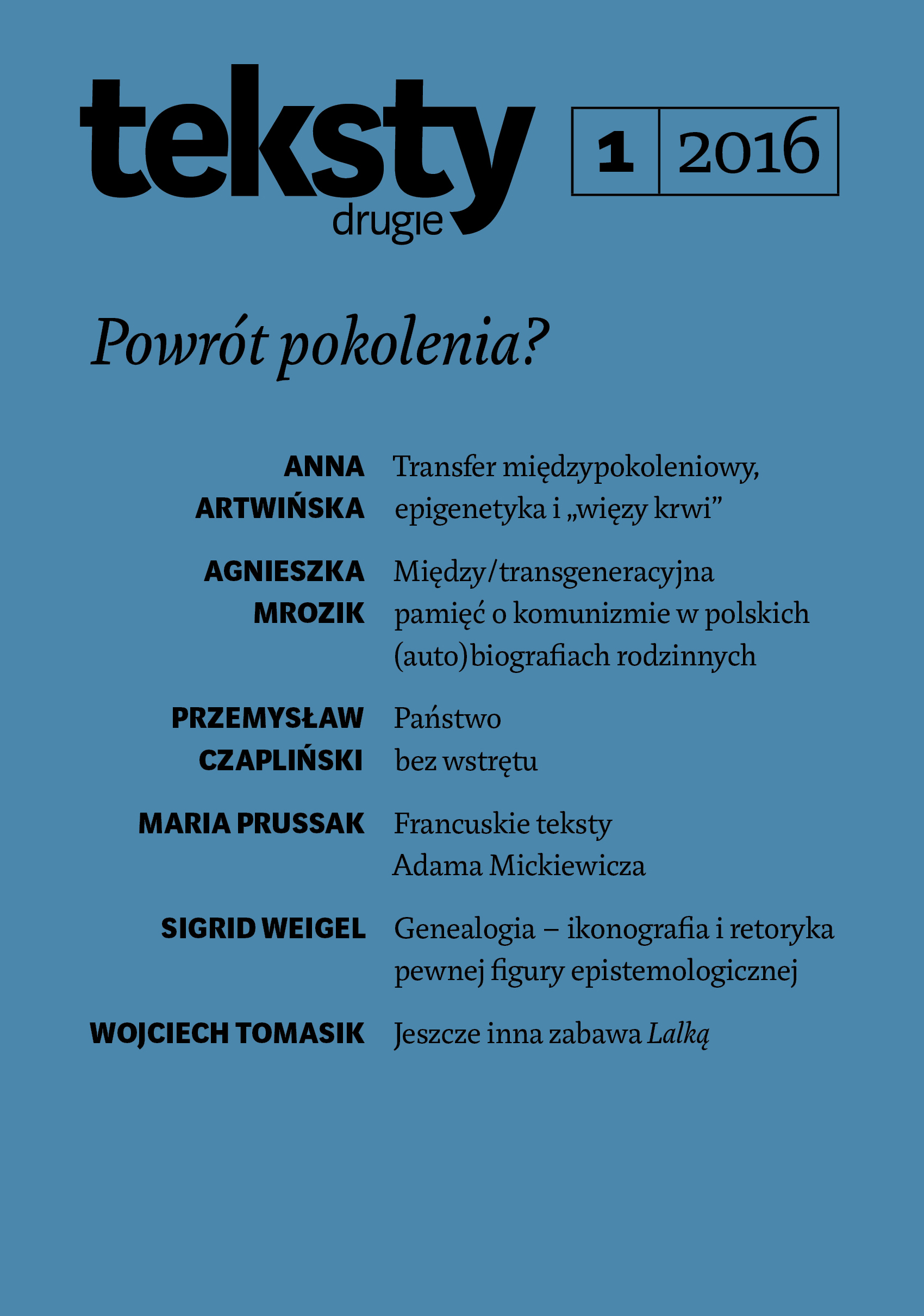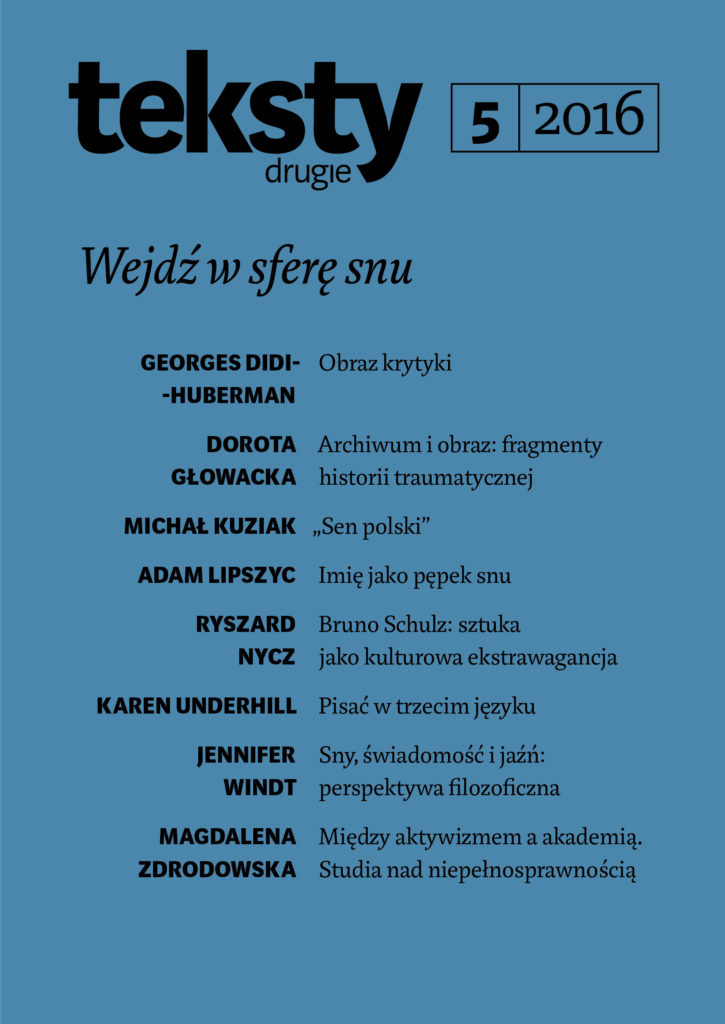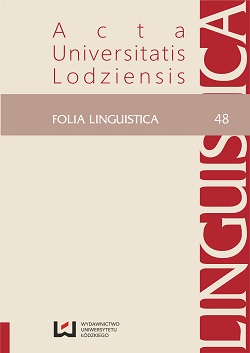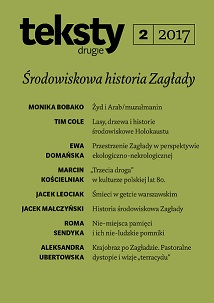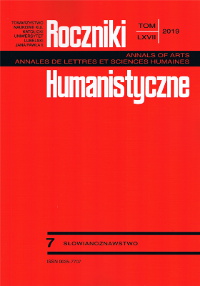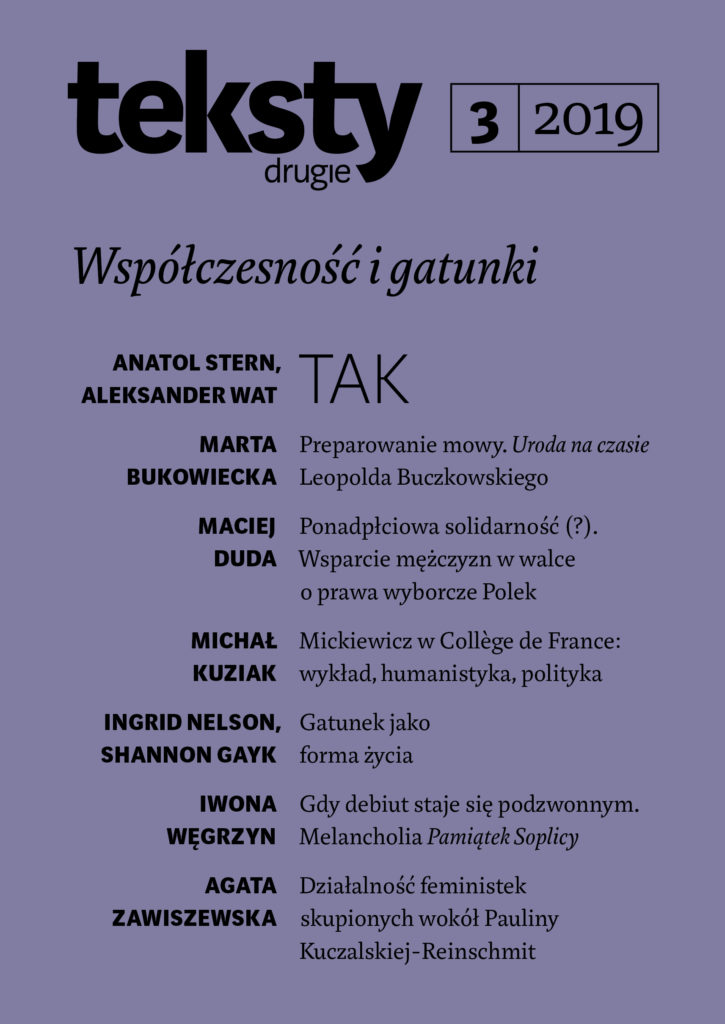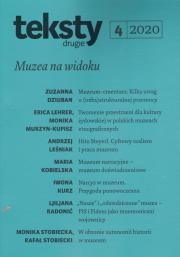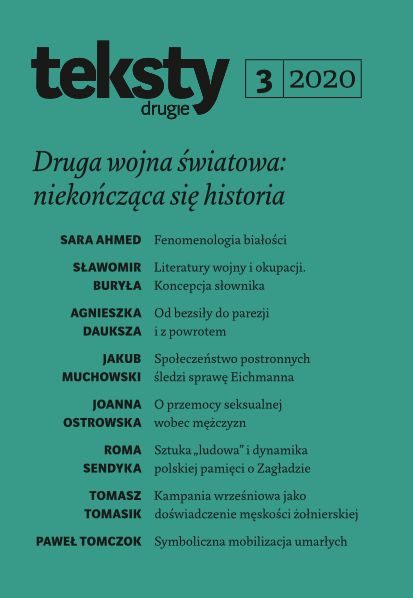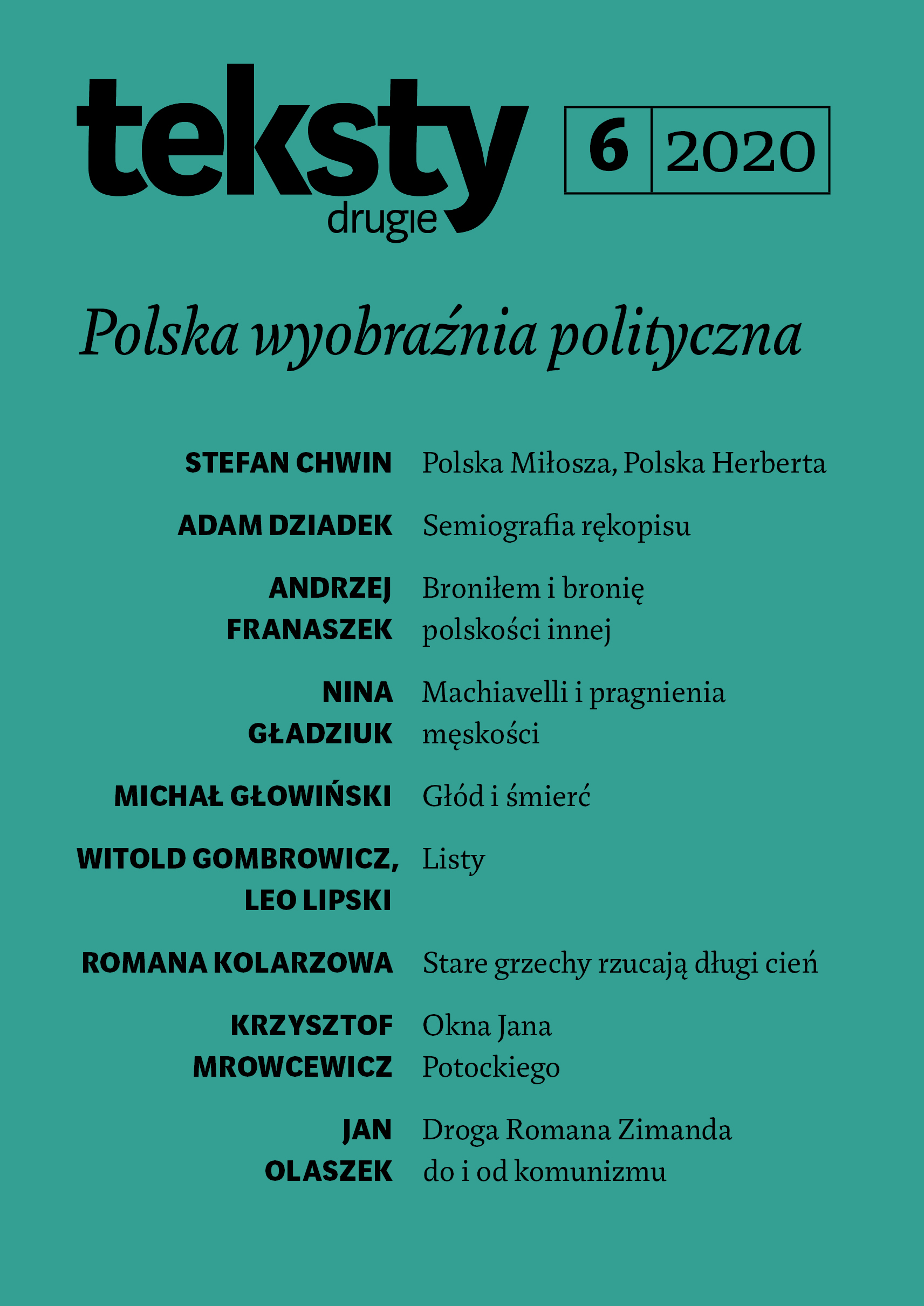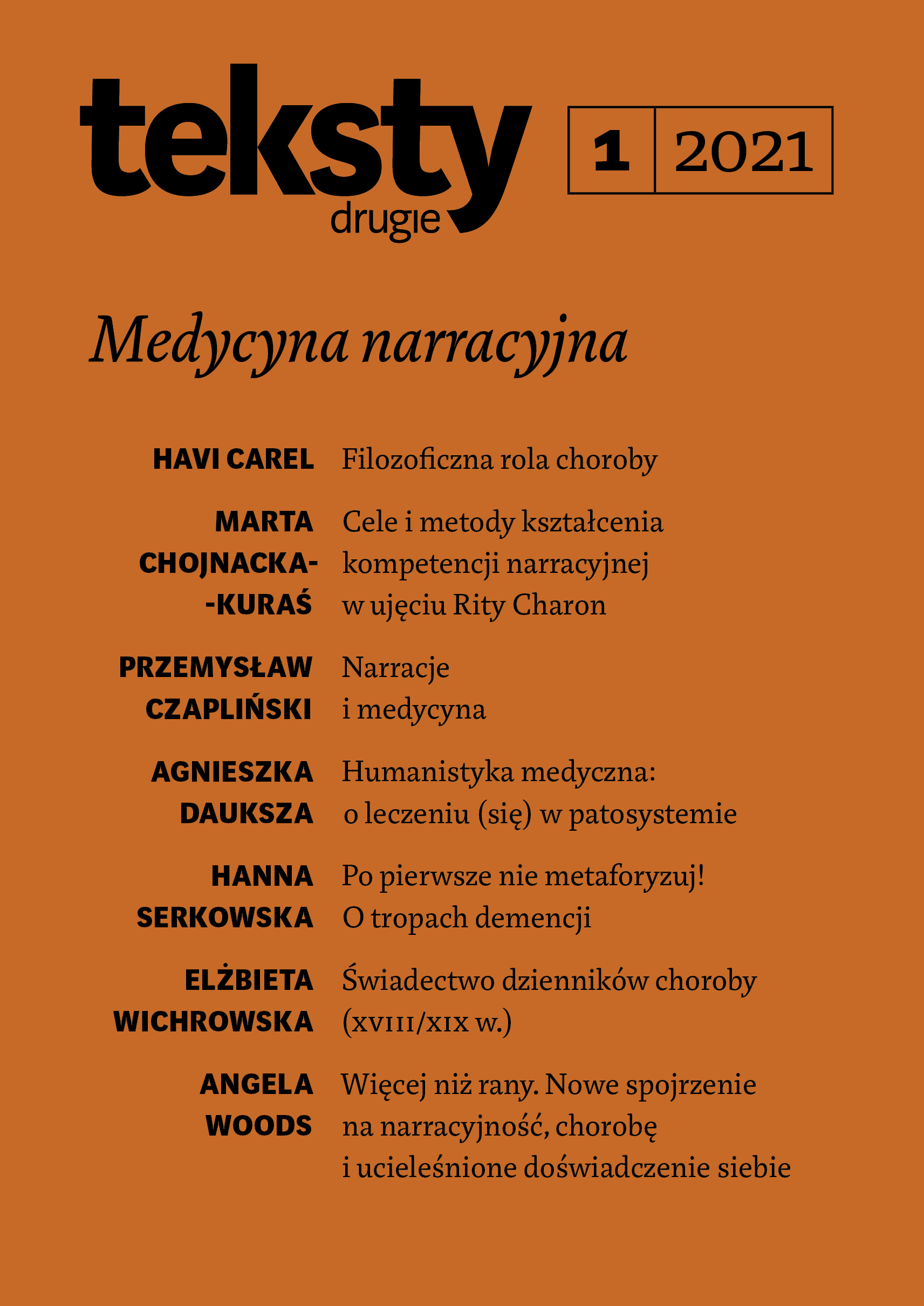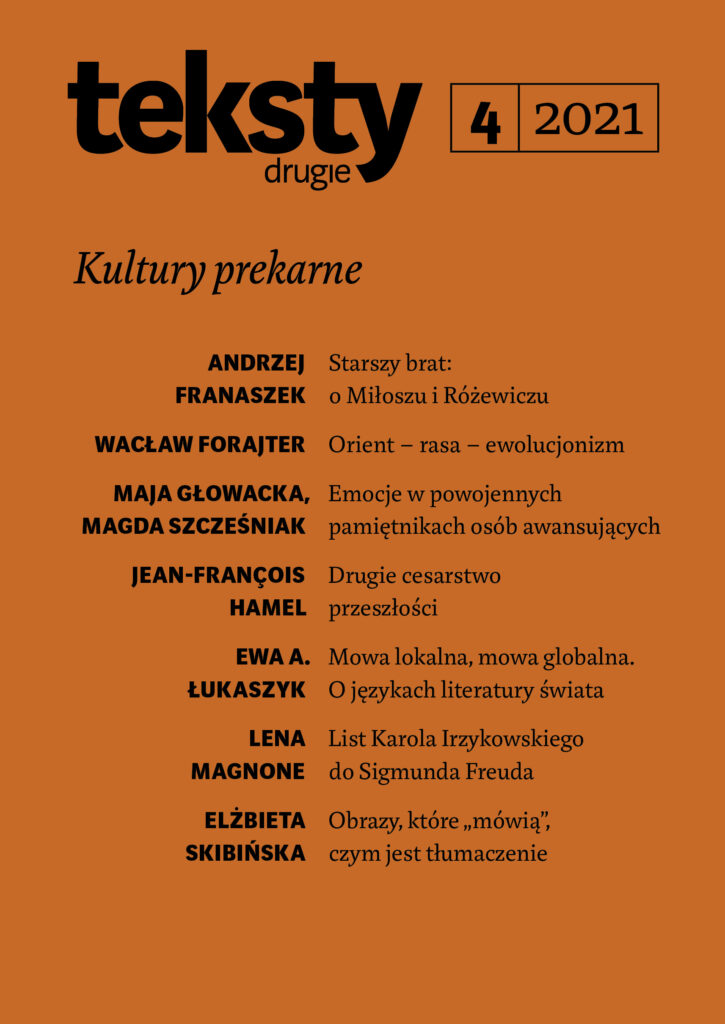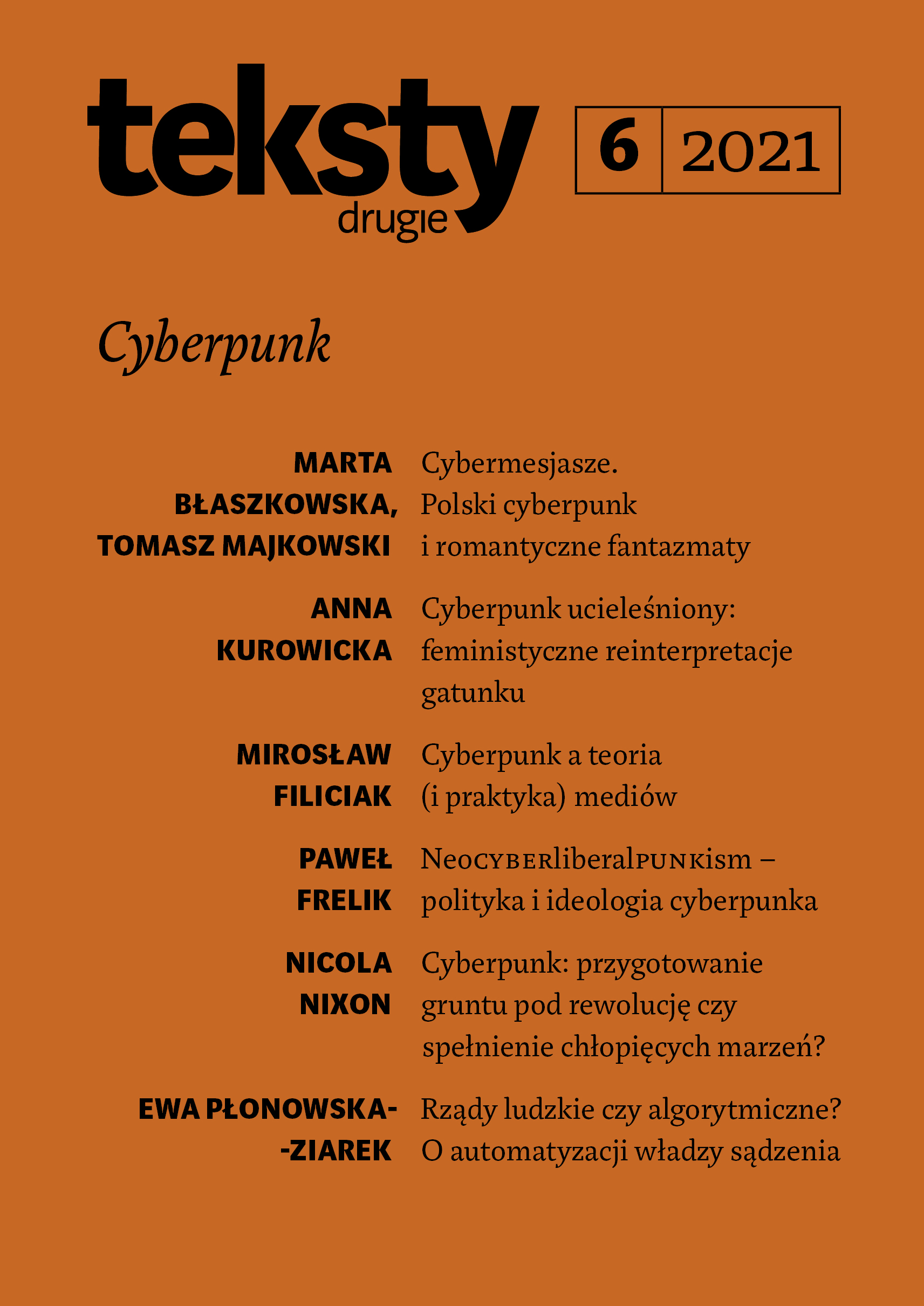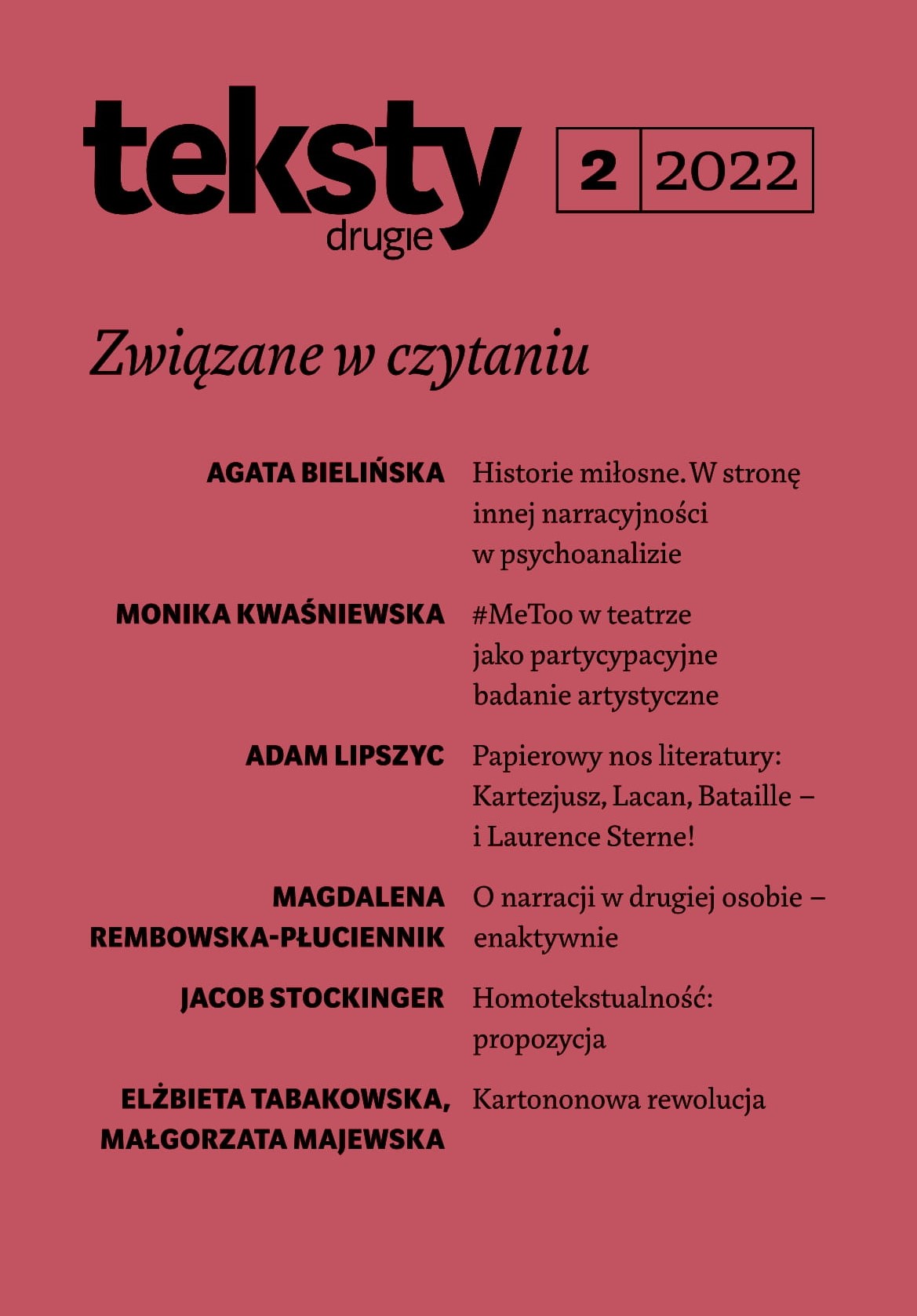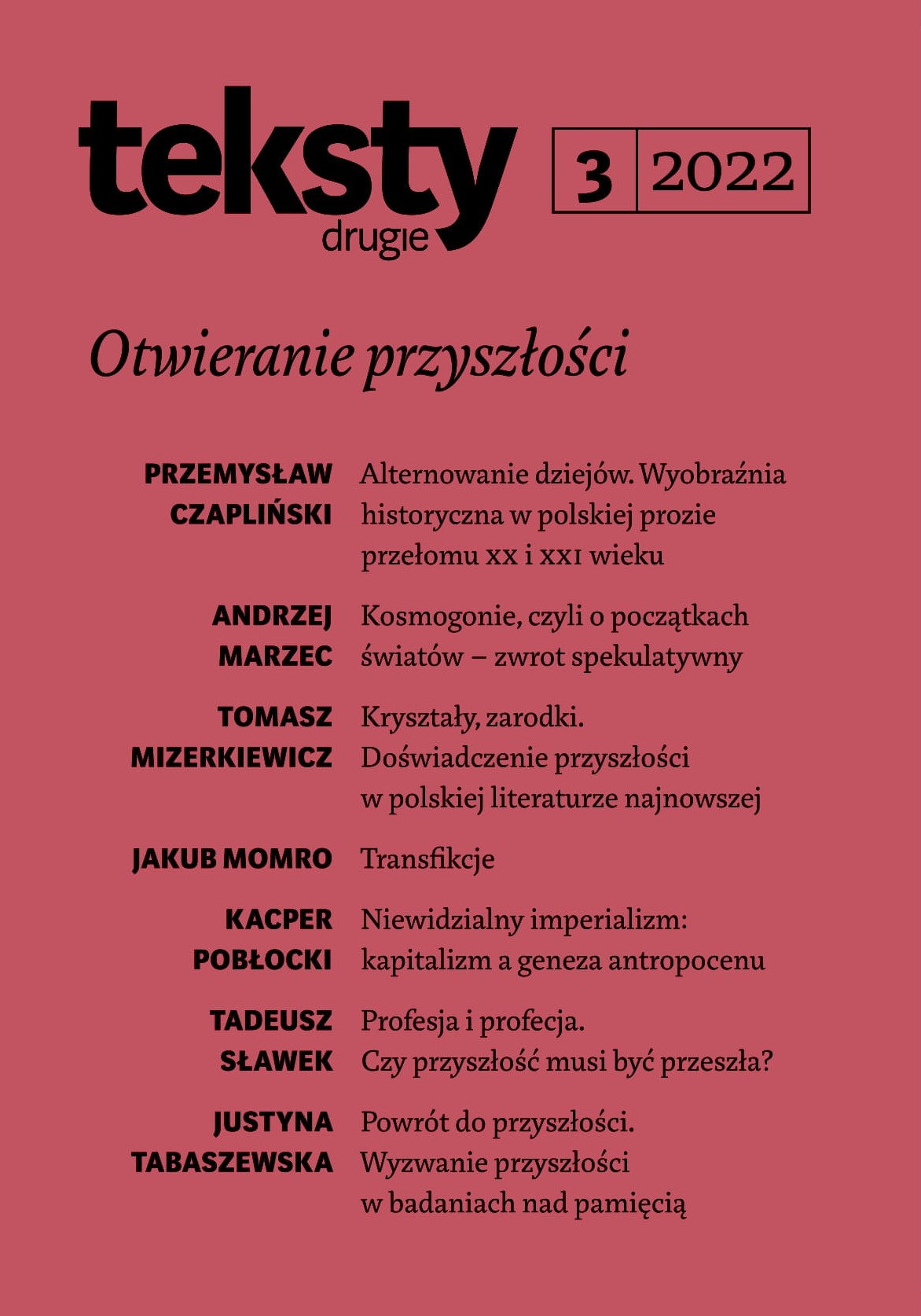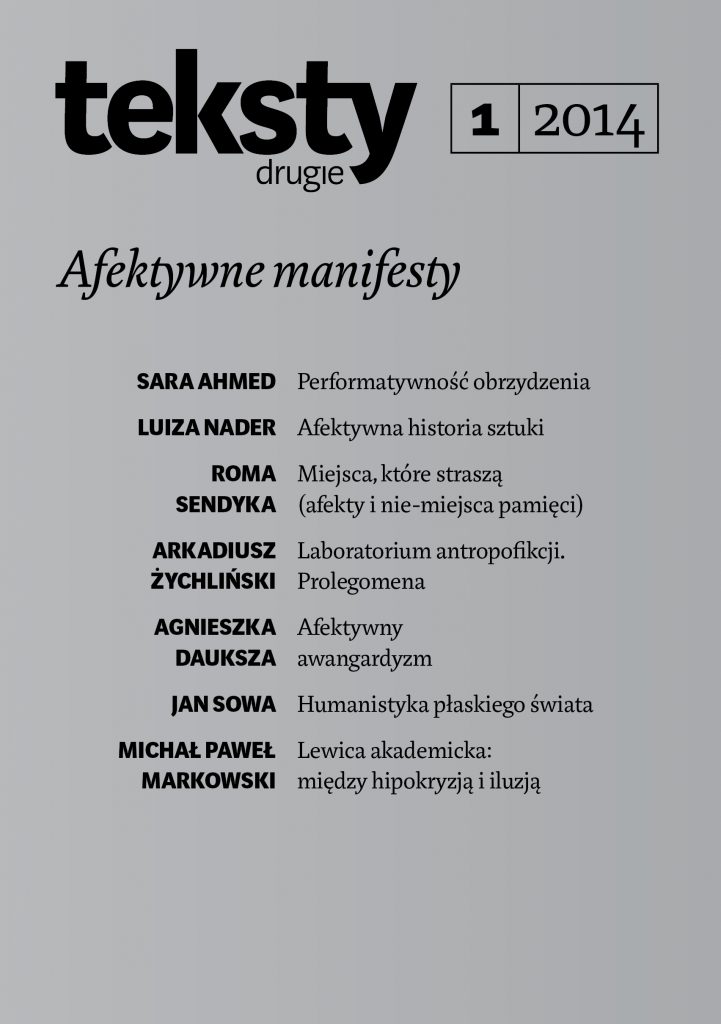
Rachela Auerbach laments the traces, remnants, spectres and breaches
Rachela Auerbach opłakuje ślady,resztki, widma, wyrwy z ziemi
Keywords: Rachela Auerbach
The article attempts at a multidimensional analysis of the Holocaust works of Rachela Auerbach, the Polish-Jewish writer. The basic assumption is that Auerbach’s writings from the period 1942-47 are concentrated on three major themes: the “experience of the survivor from the Sonderkommando”, reflection on things (dispersed in the emptied Warsaw ghetto) and the nature of the historical agent. The author focuses on two particular essays: “Lamentation of things dead” and “Lacrimea rerum”, as well as on “On the fields of Treblinka” and “Werterfassung”.
More...

